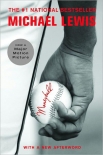Moneyball by Lewis, Michael (books to read in your 30s TXT) 📗

Book online «Moneyball by Lewis, Michael (books to read in your 30s TXT) 📗». Author Lewis, Michael
Wash had about six weeks to turn Scott Hatteberg into the Oakland A’s starting first baseman. He took Hatty out onto the Arizona practice field, fed him grounders, and tried to teach him footwork. Reflecting on those grim times Wash would say, months later, “You could see he shouldn’t be out there. He was on his heels. He didn’t know where to go, what to do, how to do it. In the back of his mind he was saying, ‘I don’t want nothin’ to happen in my area.’ He’d do all the things that cause a fan in the stands to say, ‘That kid is horseshit.’ And what do he know? What do that fan know? He don’t know nuthin’! But he’d be right. He’d be right about Hatty. That kid was horseshit.”
Wash didn’t ever say to Scott Hatteberg, or even give him the slightest non-verbal hint, what obscenities might cross the mind of the typical fan watching him play first base. The first thing Hatty needed was a feeling of confidence, even if he had no right to the feeling. But in the big meetings at the end of spring training, when the A’s front office and his fellow coaches asked Wash whether Hatty was ready to be a big league first baseman, he’d said, “You can run him out there every three or four days but don’t you go thinking you can put him out there every day.”
From the first day of spring training Hatty experienced life at first base as a series of panic attacks. “There’s this thing about first base,” he says. “You can’t drop balls: any of them.” It was nerve-wracking, in part because he had no idea what to do, but also because the stakes seemed so high. “I assumed if I was horrible at first, they’d release me,” he said. He was horrible, but they didn’t release him. Come opening day there was a temporary spot available for him in the lineup: designated hitter. The A’s regular right fielder, Jermaine Dye, was taking longer than expected to recover from the leg he’d broken in a play-off game the previous year. That put David Justice in right field, and Jeremy Giambi in left, and opened up the DH slot for Hatteberg. To fill the hole at first base Billy Beane had traded for Carlos Pena, a sensational young minor leaguer who appeared ready to make a splash in the big leagues. “Everyone said that Carlos was going to be the next Alex Rodriguez,” said Hatteberg, “so once he arrived, I assumed I wouldn’t be playing first base.” When Dye came back, he further assumed, he’d be back on the bench.
That never happened. What happened instead is that, after starting out well enough, the team went into a tailspin. When the Yankees had come to town in late April the Oakland A’s had been 11-8. Three weeks later they were four games under .500 and falling fast. In mid-May they’d gone into Toronto and been swept by the Blue Jays. The Blue Jays. Hatteberg thought he had seen it all with the Red Sox, but what happened immediately after the A’s were swept by the Blue Jays was unique in his big league experience.
Like the other players, Scott Hatteberg sensed the Oakland A’s were managed oddly, by big league standards. The team, even when it was on the field, appeared to be run not by the field manager but by the front office. And the front office were apparently pissed off. In what amounted to a purge, Billy Beane sent down to the minors the team’s starting first baseman Carlos Pena, starting second baseman Frankie Menechino, starting pitcher Eric Hiljus, and right-handed setup man Jeff Tam. Jeremy Giambi, the starting left fielder, he traded to the Phillies for a bench player named John Mabry. In a matter of hours the A’s front office had jettisoned three of their starting eight, including one guy everyone had tagged as Rookie of the Year (Pena) and another guy everyone thought was the front office’s pet (Giambi). It was Scott Hatteberg’s first real experience of Billy Beane. His first thought: Oh my God, there is nothing this guy won’t do. Once again the team found itself without an everyday first baseman. By default, the job fell to him.
His performance, at the outset, lacked elegance. He labored over the most rudimentary task: getting into position to receive throws from other infielders. “It looks effortless when guys do it,” he said, “but it’s not. Trust me.” At first base the game seemed faster than it ever had to him as a catcher. A ball would be grounded sharply to short or third and the throw would be on him before he was ready. Where was his back foot? Where was the bag? Was anyone laughing yet?





Comments (0)